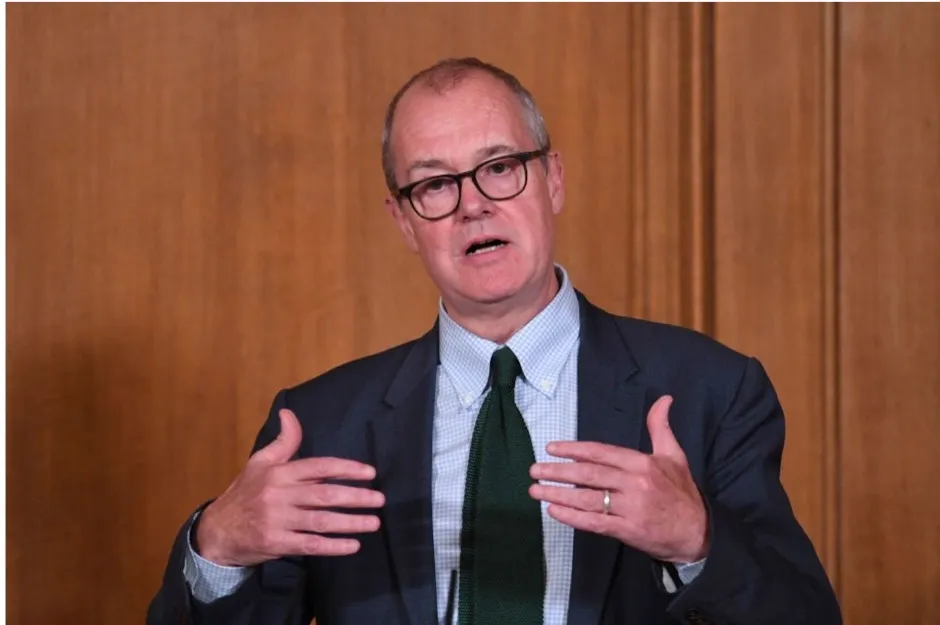Small amounts of a coronavirus vaccine could be made available to certain groups of people before the end of the year, according to the Government’s chief scientific adviser.
Sir Patrick Vallance said good progress is being made on developing a vaccine that can fight COVID-19.
In a televised press conference with England’s chief medical officer, Professor Chris Whitty, Sir Patrick said a number of vaccine candidates have shown they can generate an immune response that ought to be protective.
“We don’t yet know they will work but there is increasing evidence that is pointing in the right direction and it is possible that some vaccine could be available before the end of the year in small amounts for certain groups,” he said.
“Much more likely that we’ll see vaccines becoming available over the first half of next year, again not certain but pointed in the right direction, which then of course gives the possibility of a different approach to this virus.”
Read more:
- How are scientists developing a coronavirus vaccine?
- Have we been treating COVID-19?
- COVID-19 'highly likely' to become a seasonal disease
There are more than 240 vaccine trials taking place across the world, with more than 40 in clinical trials.
Nine of the trials are in the later stages, at phase two or three, including the University of Oxford’s vaccine trial.
Researchers at Imperial College London are also recruiting volunteers for the vaccine they are developing.
Health Secretary Matt Hancock told ITV’s This Morning a “mass roll-out” of a vaccine could be seen in the early part of next year if all goes well.
“Hopefully in the first few months – there’s still a chance of it coming on stream before Christmas, but we’ve then got to roll it out and the first people who will get it are the people who are most vulnerable – people in care homes, older people,” he said.
“There’s a series of different vaccines, but we are talking about – essentially, for it to have an impact on how we live our lives – we’re talking about the start of next year.”
Speaking at the press briefing, Prof Whitty also warned that the virus is not getting milder as some people have suggested but suggested science would eventually “ride to our rescue” but that in the next six months it would have to be taken very seriously.
“What we’ve seen in other countries, and are now clearly seeing here, is that they’re not staying just in the younger age groups, and moving up the age bands and the mortality rates will be similar to – slightly lower than they were previously – but they will be similar to what we saw previously,” he said.

Sir Patrick also said the size of the UK population with antibodies was still low, making the “vast majority” of people “susceptible” to COVID-19.
He explained that antibodies were not an “absolute protection” either, adding that immunity to the disease fades over time.
“What we see is that something under 8 per cent of the population have been infected as we measure the antibodies,” Sir Patrick said. “So 8 per cent, about three million or so people, may have been infected and have antibodies. It means the vast majority of us are not protected in any way and are susceptible to this disease.”
The Government’s chief scientific adviser added that antibodies in city populations were a “little higher” and that as many as 17 per cent of people in London could have them, making the spread slower in those areas.
Reader Q&A: Why don't viruses like the flu die off when no one is ill?
Asked by: Andrew Cirel, via email
Strictly speaking, viruses can’t ‘die off’ as they’re just inanimate strips of genetic material plus other molecules. But the reason that they keep coming back is because they’re always infecting someone somewhere; it’s just that at certain times of the year, they’re less able to infect enough people to trigger a full-blown epidemic.
Many viruses flare up during the winter because people spend more time indoors in poorly-ventilated spaces, breathing in virus-laden air and touching contaminated surfaces. The shorter days also lead to lower levels of vitamin D, and this weakens our disease-fighting immune system. Experiments also suggest that the flu virus in particular remains infectious for longer in low temperatures.
Read more:
